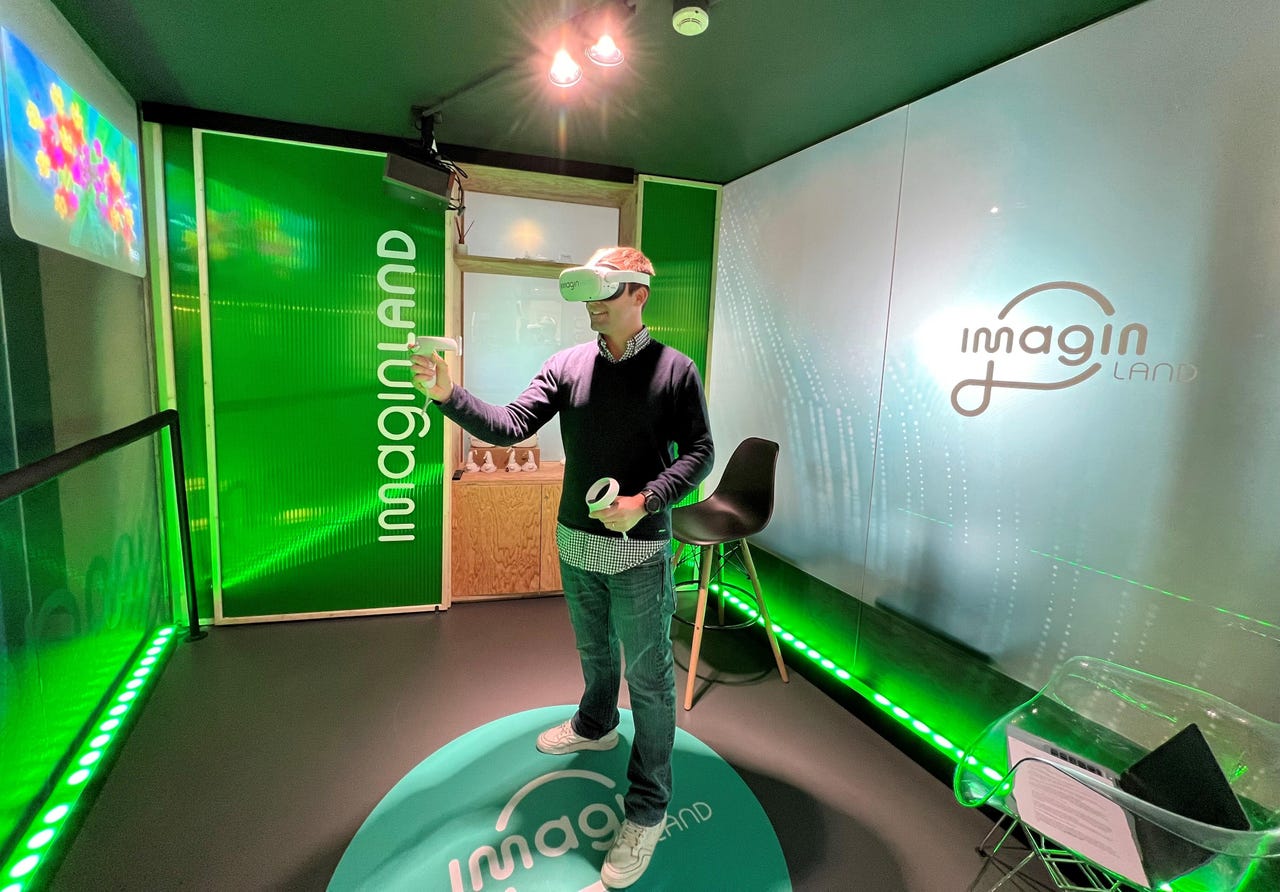































 Image: CaixaBank/imagin
Image: CaixaBank/imagin Meta's vision for the metaverse depicts a mixed reality blending the physical and the digital world, which gives students new interactive-learning environments or surgeons the ability to practice before laying their hands on a real patient.
But for the moment, the concept developed by Mark Zuckerberg's company consists of different platforms similar to those offering multiplayer online role-playing games or virtual worlds like Second Life (launched in 2003) -albeit with better computer graphics and crypto payments.
Cai Felip, CEO at Linking Realities, a Catalan company specializing in avatars, disagrees. "For me, it's an open socialization space that somehow recovers the original idea of the internet", he tells ZDNet.
From blockchain and bitcoin to NFTs and the metaverse, how fintech innovation is changing the future of money.
Read nowFelip points out that, in 2021,$4.2bn was spent on skins trading and the D2A (Direct to Avatar Economy) is expected to reach one trillion dollars in the next decade. A Citi report issued in March 2022 backs his statements: the metaverse economy could hit$13 trillion by 2030, with total metaverse users numbering around five billion.
Spanish companies such as Zara, Balenciaga in the fashion sector and Metrovacesa, in the real-estate sector, have already jumped in. Now, the largest banks in the country are also exploring the potential of virtual reality (VR) in bringing a more personalized experience to clients and developing new products. At least, that's what they say.
Banks and businesses know that micropayments will be key in this space of socialization, and that cryptocurrencies will dominate and maybe even coexist with fiat currencies, so they want to be there. Economics and social research think tank (FUNCAS) found that 47% of bankers believe their clients will use VR and augmented reality (AR) as a channel for financial transactions in 2030.
In February, major Spanish banks Banco Santander and BBVA made their debut in the Decentraland metaverse through Metrovacesa. Both banks are shareholders of the real-estate developer, with 49.4% and 20.9% respectively. The following month, imaginBank, the digital services and lifestyle platform backed by CaixaBank, launched its own virtual space within the Decentraland metaverse.
imagin's imagineCafe, a Metaverse space based on its real-life co-working space in Barcelona.
Image: CaixaBank/imaginimaginLAND is a virtual replica of imaginCaf
 Tags quentes :
Inovação
Tags quentes :
Inovação